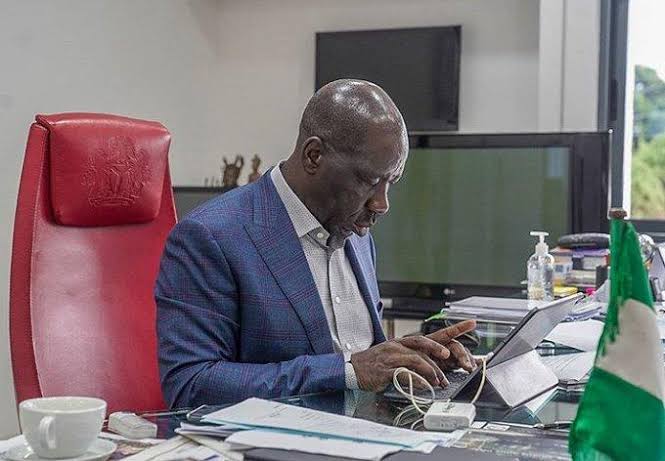There is one re-occurring message in all the above Bible lessons; and that is what I refer to as: “Help Ministry.” This is using what God has given us to serve God in one another. God blesses us with gifts to gift same to those in need.
Doing Good To Others Shows Two Things:
What we have is given and owned by God.When we do “good” to men; we are doing it to God in whose image those you are helping were created.
What Is Help?
To give aid, support or assistance, especially to those who needs it the most. Note that help is valued when it is most needed. Our true help comes from God alone. We should never get weary of seeking God’s help (Matthew 15:25).
In Romans 8:26, Paul said that, the spirit helps our infirmities. We must never be deceived by man’s help (Psalm 60:11-12).
• It is nothing.
• It is conditional.
• It is deceptive.
• It is selfish.
• It is carnality.
In the contrary, God’s help is limitless and stretched beyond our comprehension (Isaiah 41; 10-14; Psalm 20:2). God is helping us to help others in need.
In 1 Chronicles 29:1-9, we can discover the following;
• The good we do is not to man, but to God (vs 1).
• Whatever good we do should be done with all our might (vs 2).
• We should render the right help for the right reason(vs 2,5).
• The good we do should be with affection for God (vs 3,5)
• Our service and good deed should be willingly done and not by compulsion.
• We should find joy in doing “good.”
The Mystery Of Our Good Deeds (Matthew 25:35)
The good we do, we do unto God; the good we fail to do is also done unto the Lord. The good we neglect and fail to do is as bad as the evil that we did.
God comes to us with opportunity to help through:
• Those who are hungry.
• Those who are thirsty.
• The strangers.
• Those who are naked.
• Those who are sick.
• Those in prison.
• Those who lack.
If we fail to love those we see, it is difficult to point that we love God (1 John 4:20).
We Do Good By:
• Caring for the weak (Leviticus 25:35; Deut. 15:11; Prov. 29:7; Isaiah 25:4).
• Loving to do what is right (Isaiah 1:17).
• Imitating God’s helpfulness (John 3:17; James 1:5).
• By overcoming selfishness (Proverbs 3:27; 21:13; Philip. 2:3-4)
Prayer is part of human existence. Every culture, tradition and religion across human existence prays; sometimes to a particular deity or a fellow human who may be considered powerful and influential. Needs and lack is the reason for prayers. Only a few understand that prayer is an act of worship; you only worship what you consider that has a worth. When people pray they expect answers to every of their prayers, but God wants us to be an answer to someone’s prayer.
In Matthew 25:31-46; we discover that whatever good we do to others we do to the Lord God. God created everyone wonderfully, and there are no two persons that are the same; people in their uniqueness approach life issues differently. Some are born with high IQ, while others are born brave.This also affects their outcome in life; the strong is to bear with the inabilities of the weak. Our attitude to money reveals so much about our spiritual commitment and our worth for humanity. God’s love for His creation is for both the poor and the rich alike.
In Matthew 26:11, Jesus answered his disciples saying: “For you have the poor with you always, but Me you do not have always.” In life,there are some people you will meet once or for some period and will never meet them again.We are given opportunities that may never come again; for this reason, Paul in writing to the Galatians said: “Therefore, as we have opportunity, let us do good to all, especially to those who are of the household of faith.” Galatians 6:10 and Ecclesiastes 9:10, “Whatever your hand finds to do, do it with your might; for there is no work or device or knowledge or wisdom in the grave where you are going.”
In Deuteronomy 15:10-11: “Give generously to them and do so without a grudging heart; then because of this the Lord your God will bless you in all your work and in everything you put your hand to. There will always be poor people in the land. Therefore, I command you to be openhanded toward your fellow Israelites who are poor and needy in your land.”
Many wonder why God allow some to be poor and others to be rich. Humans are created by God with will power, opportunity and chance; our reaction and action to will, opportunity and chance; the action and inaction determine our output. The Bible has a lot to say about wealth and poverty. God is the creator and owner of everything in the universe, including wealth and poverty. In Proverbs 10:22, we read: “The blessing of the Lord makes rich, and he adds no sorrow with it.” This verse reminds us that God is the source of all blessings and that wealth comes from Him. Furthermore, the Bible teaches that wealth can be a blessing or a curse, depending on how it is acquired and used. Proverbs 11:28 states: “Whoever trusts in his riches will fall, but the righteous will flourish like a green leaf.” This verse warns us that wealth can be fleeting and that those who rely solely on their wealth will eventually fall. It also reminds us that righteousness is more important than wealth.
God may permit some to be poor for the following reasons:
• To Teach Us Contentment— By not having all and enough we learn to be contented. By this we also learn to be grateful. In Philippians 4:11–12, we read, “I have learned to be content in whatever circumstances I am. I know how to get along with humble means, and I also know how to live in prosperity; in any and every circumstance I have learned the secret of being filled and going hungry, both of having abundance and suffering need.”
• To Show His Sovereignty: God is sovereign and has the power to do whatever He wants. Sometimes, He allows some people to be rich and others to be poor to demonstrate His power and authority. In Romans 9:20–21, we read: “But who are you, O man, to answer back to God? Will what is moulded say to its moulder, ‘why have you made me like this?’ Has the potter no right over the clay, to make out of the same lump one vessel for honorable use and another for dishonorable use?” This verse reminds us that God is the potter and we are the clay. He has the right to make us, however, He wants and to use us for His purposes.
• To Teach Us Dependence: God sometimes allows us to experience poverty to teach us dependence on Him. In Deuteronomy 8:2–3, we read: “And you shall remember the whole way that the Lord your God has led you these forty years in the wilderness, that he might humble you, testing you to know what was in your heart, whether you would keep his commandments or not.
And he humbled you and let you hunger and fed you with manna, which you did not know, nor did your fathers know, that he might make you know that man does not live by bread alone, but man lives by every word that comes from the mouth of the Lord.” This verse reminds us that God provides for us and sustains us, even in difficult times.
• To Show His Grace and Mercy: God sometimes blesses people with wealth to demonstrate His grace and mercy. In 2 Corinthians 9:8, we read: “And God is able to bless you abundantly, so that in all things at all times, having all that you need, you will abound in every good work.” This verse tells us that God is generous and loves to bless His people. However, we must remember that the blessings we receive are not meant for us alone but to bless others as well. God sometimes may allow us to experience lack or even poverty to teach us to be contented and gratitude towards his gift and supply
• Test of Faith: Tough times are part of building process; God sometimes allows His child to go through difficulties to build faith, character, and dependence. Wealth is relative and should never be judged as a sign of prosperity and godliness.
Wealth can be defined as the abundance of valuable possessions or money, while poverty is the state of being extremely poor or lacking basic necessities of life. Wealth or poverty can be defined within the context, norm and value of a given society. What one group considers wealth may not be same by the other. On the other hand, poverty can also be a blessing or a curse.
Beloved, today, in this season of God’s grace and glory, God has revealed that it will be our season of answered prayers, but we must make ourselves an answer to someone else’s prayer.
• Venerable Stephen Wolemonwu is the Rector, Ibru Ecumenical Centre, Agbarha-Otor, Delta State (08035413812)

 3 months ago
61
3 months ago
61







![[ICYMI] No N500m missing from customer’s account, says Access Bank](https://cdn.punchng.com/wp-content/uploads/2018/09/14183604/20180707-DSC_0077new.jpg)







 English (US) ·
English (US) ·